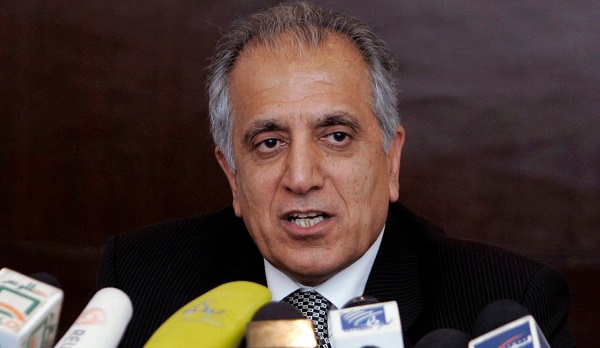US-Taliban pact soon?
January 29, 2019 | Expert Insights

After six days of intensive negotiations, Taliban insurgents and U.S. officials meeting in Qatar appear to be closer to an agreement, that could result in the withdrawal of American troops after 17 years of war.
Background
The US invaded Afghanistan following the September 11, 2001, terror attacks, and blamed the Afghan government for hosting the terror organisation: Al-Qaeda. The Taliban insurgency began after the group experienced a fall, after the 2001 War in Afghanistan. The Taliban forces were fighting against the Afghan government and against the US-led International Security Assistance Force (ISAF).
The insurgents now control more than 40 per cent of the country. The UN mission in Afghanistan has reported that nearly 1,692 civilians were killed in violence in the first six months of 2018. This is the highest six-month death toll since the systematic documentation of civilian casualties began in 2009.
The war's public aims were to dismantle al-Qaeda and to deny it a safe base of operations in Afghanistan by removing the Taliban from power. The War in Afghanistan is the second longest war in United States history, after the Vietnam War. Seventeen years after the US-led invasion that ended Taliban rule, militants control nearly half of Afghanistan and carry out near-daily attacks on local security forces and government officials.
Analysis
Initial reports from Doha, the Qatari capital, said the outlines of an agreement have been reached and a joint statement was imminent, but by Saturday night there were indications of a stumbling block over U.S. demands for a lengthy cease-fire and the inclusion of Afghan officials in talks.
The insurgents have demanded that the Trump administration lay out a timetable for a U.S. troop pullback, and they have said they will not stop attacking Afghan and foreign targets until all U.S. troops have been ordered to leave.
The Trump administration has been eager to end the U.S. role in a war that has cost 2,400 American lives and billions of dollars, and the president has said he wants to send home half of the 14,000 troops now in the country. U.S. officials have asked the Taliban to guarantee that other militias, such as Islamic State militants, will not be allowed to use Afghanistan as a base for attacking Western interests.
Zalmay Khalilzad, the Trump administration’s special envoy for Afghan peace, left Doha on Saturday and was en route to Kabul for consultations. In several tweets, he said the six days of meetings were “more productive than they have been in the past. We made significant progress on vital issues.” However, he said that there were “a number of issues left to work out” and that there could be no overall agreement without a cease-fire period that includes dialogue among Afghans. “Nothing is agreed until everything is agreed,” he tweeted.
Until now, Taliban officials have refused to talk to Afghan authorities, insisting that they are the country’s true leaders and that the government of President Ashraf Ghani is an American puppet.
The insurgents have continued fierce assaults on Afghan targets, including a deadly attack on an intelligence agency compound on Monday — even as they resumed meeting with Khalilzad in Doha last week after a temporary dispute and then sent a former senior Taliban official, Abdul Ghani Baradar, to Doha to lead the talks after he was released from eight years in Pakistani custody.
American and Taliban officials have agreed in principle to the framework of a deal in which the insurgents would guarantee Afghan territory is never used by terrorists, which could lead to a full pullout of American troops in return for larger concessions from the Taliban. The US' negotiator, Zalmay Khalilzad, said those concessions must include the Taliban’s agreement to a cease-fire and to talk directly with the Afghan government, which the insurgents have persistently opposed in the past.
Counterpoint
Afghan officials have expressed a concern that securing a balanced governing arrangement and protecting public freedoms could be put at risk by U.S. impatience to end its military involvement. Once U.S. troops leave, Afghan officials have warned, there will be no incentive for the insurgents to compromise on their domestic agenda.
Other observers say that Afghan security forces alone cannot defend the country against the insurgents. They also warn against a repeat of the civil bloodshed that erupted after Soviet forces left Afghanistan in 1989 and the anti-Soviet Islamist militias refused to negotiate with the communist-backed Kabul government.
Assessment
Our assessment is that the Taliban and Islamic State are more active than ever before in Afghanistan. We believe that there is no immediate military solution to ending the war in Afghanistan. Taliban who has gained support from Iran and Pakistan is participating in efforts to reach a settlement with the Trump administration and Afghan President Ashraf Ghani’s government, in return for meeting the demands of their group.








Comments